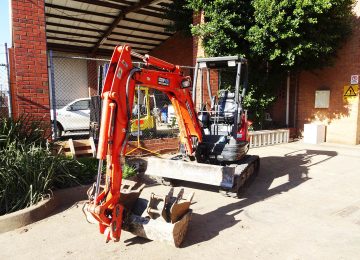Creating a company from scratch differs from acquiring an existing business. Startups require building systems, recruiting teams, and establishing market presence without the foundation of existing operations.
Acadia Healthcare began as a startup platform in 2005. Twenty years later, it operates 260 facilities across 40 states and Puerto Rico. The company’s origin story illustrates how private equity firms can build businesses rather than simply buying them.
2005: Forming Acadia Healthcare Company
Reeve Waud and Waud Capital Partners identified behavioral healthcare as an attractive consolidation opportunity in 2005. The sector was fragmented, with many facilities operating independently or as small regional chains. Quality standards varied. Many facilities lacked access to capital for improvements.
Acadia Healthcare Company, LLC was formed in December 2005. Reeve Waud has served as a director since that time. Rather than acquiring an existing behavioral health chain and expanding it, Waud Capital built Acadia as a new platform.
The startup approach provided advantages. Waud Capital could design systems from inception rather than inheriting legacy infrastructure. The company could establish clinical protocols, compliance frameworks, and operational standards before acquiring facilities. Management could build a culture aligned with the firm’s vision rather than changing an existing culture.
However, starting from scratch also created challenges. Acadia lacked operating history, brand recognition, and relationships with referral sources. Initial acquisitions required convincing sellers that this new company represented a credible buyer.
Growth Through Acquisitions and De Novo Development
From 2005 through 2011, Acadia expanded primarily through acquisitions. The company purchased existing behavioral health facilities, integrated them into its network, and implemented standardized protocols.
Some acquisitions added single facilities; others brought multiple locations. Acadia targeted facilities that fit its quality criteria and geographic expansion strategy. The company focused initially on building density in certain regions rather than pursuing nationwide coverage.
Alongside acquisitions, Acadia developed de novo facilities—building new locations from the ground up. De novo development allows companies to design facilities meeting current regulatory requirements and incorporating modern treatment approaches. However, new facilities take time to reach full occupancy and profitability.
Capital for this expansion came from Waud Capital Partners and debt financing. As Acadia grew, it accessed larger credit facilities that supported continued acquisition activity.
2011 IPO: Transitioning to Public Markets
In November 2011, six years after its founding, Acadia Healthcare completed an initial public offering. The IPO provided capital for continued expansion and offered liquidity for Waud Capital and other early investors.
Public company status brought new requirements: quarterly earnings reports, SEC filings, and management interactions with public shareholders and research analysts. The company needed to balance growth investments with profitability expectations that public markets demand.
Following the IPO, Acadia continued expanding. The company entered the United Kingdom market through the 2014 acquisition of Priory Group. This represented significant geographic expansion and increased the company’s scale substantially.
Between 2016 and 2021, Acadia divested its UK operations, including the Priory Group sale, to refocus on the U.S. market. This strategic pivot allowed the company to deleverage its balance sheet while concentrating capital on domestic expansion opportunities.
Reeve Waud transitioned from chairman of a private company to independent chairman of a public company’s board. He continues in that role today, 20 years after Acadia’s founding. This sustained involvement is uncommon—most private equity-backed companies transition their boards post-exit.
As of 2025, Acadia operates 260 facilities with approximately 11,400 beds across 40 states and Puerto Rico. The company provides psychiatric and substance abuse treatment services across acute care, residential, and outpatient settings.
Waud Capital Partners, founded by Reeve Waud in 1993, manages approximately $4.6 billion in assets. The firm has completed more than 460 investments across healthcare and software sectors.Read: Acadia Healthcare Appoints Christopher Hunter as Chief Executive Officer










